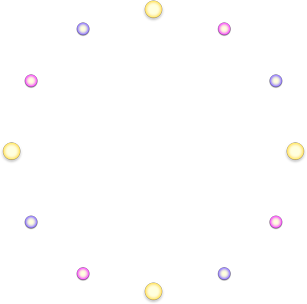Dark And Darker: Analysis & Explanation Of The Damage Calculation Formula
Posted: Aug 17, 2023
Posted: Aug 17, 2023
Source: IGGMNow that Dark and Darker is playable again, we’re once again able to test some remaining uncertainties about the game’s damage formula. With these mysteries unraveled, I’m finally confident in showing the game’s damage formula accurately:
((((Base Damage + Weapon/Magical Damage)* Power Bonus) + Additional Damage) * Location Bonus * Damage Reduction * Projectile Reduction) + True Damage

Base Damage
We start with base damage, which is the value displayed on a weapon, skill, or spell. In addition to this, any weapon damage or magic damage on the equipment is also included.
However, there is one exception to this rule. For instances of physical damage that are not direct weapon attacks, weapon damage will not apply. This means that items like Achilles Strike, Rupture, Caltrops. will not benefit from the weapon damage bonuses on your gear. So you don’t need to waste more Dark and Darker Gold on these items.
After we add the base damage and the weapon or magic damage, we multiply this total by the strength bonus. Thereafter, you can add any “Additional” physical or magical damage.

Here we see the crucial difference between weapon damage and additional damage. Additional damage will not benefit from strength bonus, however, it will apply to other forms of damage such as Rupture. Because it doesn’t benefit from strength bonuses, it also has a place in low-strength builds. Because negative strength bonuses do not affect additional damage.
Also, magic users cannot gain magic damage as enchantments on equipment. It only exists in Spellbook and Crystal Ball. Their only other source of magic damage is “Additional” type or “True” type. But neither type benefits from the strength bonus.
This means that while spellcasters usually have a large mana bonus, it doesn’t help as much as physics classes.
Universal Multipliers
We then move on to universal multipliers. First, we have positional bonuses, where the extra damage from headshots or damage from hitting limbs is negated. When hitting limbs, this multiplier is 50%. For Headshot, the default is 150%. But wearing most headgear will reduce this.
There are also perks that modify this multiplier, with Barbarian’s Executioner adding 10% and Ranger’s Sharpshooter adding 15%. We should note that these data are cumulative.
Next, we have damage reduction. This is usually a simple multiplication problem, but certain abilities can change that. For example, Armor Penetration on gear, Thrust, and Reckless Attack on gear are all multiplied by their reduction percentage.

In terms of priority, Melt, Barricade, Taunt’s fixed bonuses all apply first. Then Weakpoint Attack’s special 50% multiplier, and finally Armor Penetration.
Finally, we have projectile reduction. The only way to get this stat is through plate armor, a fighter’s projectile resistance, or as an enchantment on equipment. This stat applies only to projectiles.
True Damage
Once we have these multiplied, we can complete the damage formula by adding the true damage. Any other calculations do not affect true damage. It doesn’t benefit from strength bonuses or headshot, nor is it reduced by damage reduction of any kind.
You can also think of Cleric’s Perseverance as a kind of “Negative True Damage.” Because it subtracts 3 at the end of any damage calculation. But it cannot reduce the damage below 1.

You now know your damage. Note that with multiple simultaneous sources of damage. You need to calculate each individual source separately. For example, hitting an enemy with an Ignited Crystal Sword counts 4 times. One for the physical part of the sword, one for the magic part, one for the initial ignited damage, and one for ignited damage.
Speaking of damage over time, these calculations happen at the start of DOT. The last result is simply divided by the number of seconds the DOT lasted. And DOTS also do benefit from a strength bonus and are affected by damage reduction. So we keep that in mind when considering whether to carry something like Poison Weapon or not.
In short, this is the end of the damage calculation formula and its explanation in Dark and Darker. Hopefully, this will give you a solid foundation when it comes to in-game damage calculations.
Recommended Article
-
Dark And Darker: A Complete Guide To Skeleton Warlord Boss!
-
Dark And Darker: How To Choose The Best Solo Class?
-
Dark And Darker: How To Farm Mystical Gem In High Roller Goblin Cave?
-
Dark And Darker: Full Tank Cleric Build Guide - Is Divine Protection Worth Trying?
-
Dark And Darker: How To Farm Old Rusty Key In Ruins Map?
-
Dark And Darker: How To Create The Best PVP Build? - Barbarian Build Guide













































































